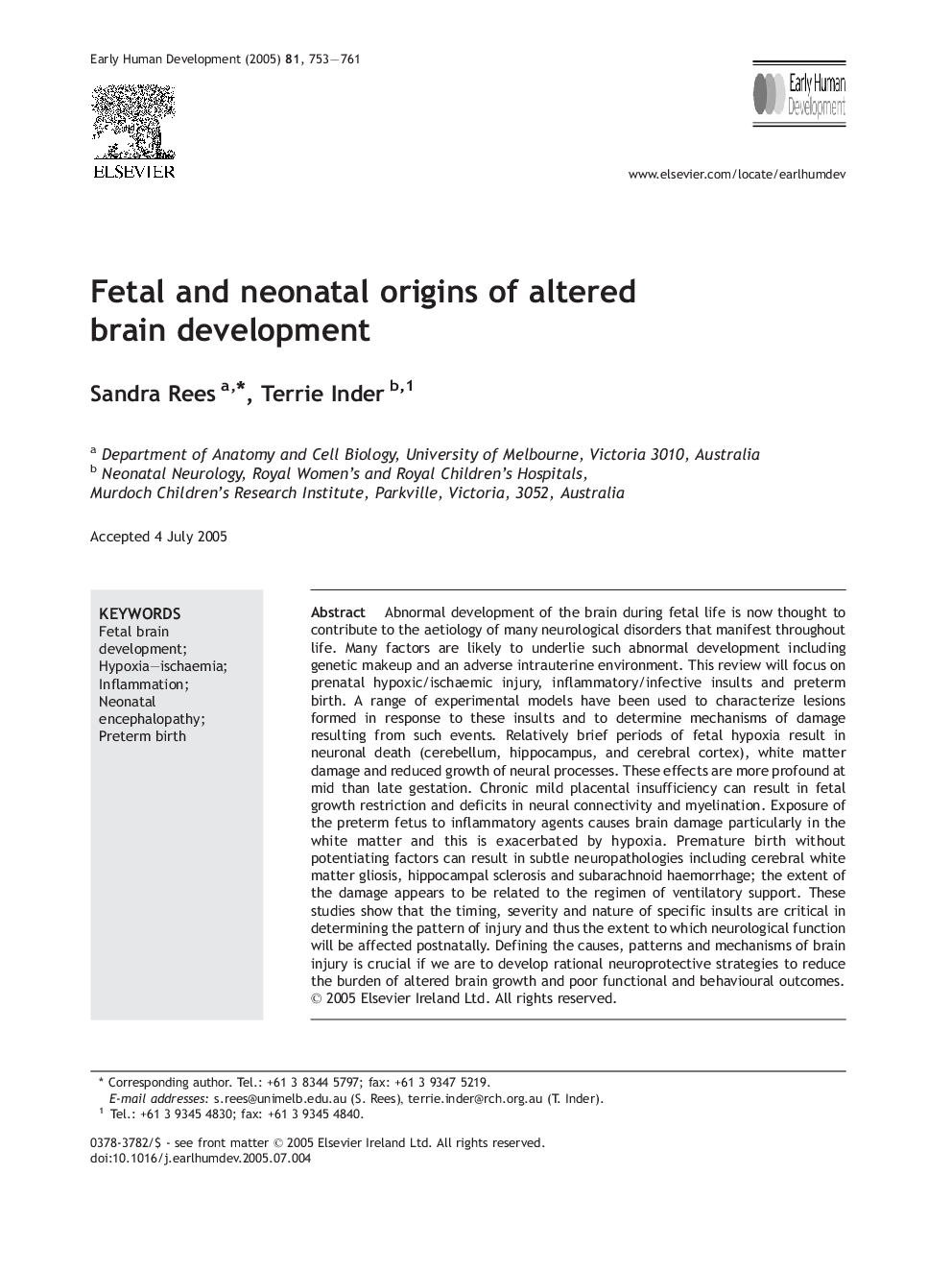| کد مقاله | کد نشریه | سال انتشار | مقاله انگلیسی | نسخه تمام متن |
|---|---|---|---|---|
| 9318830 | 1252229 | 2005 | 9 صفحه PDF | دانلود رایگان |
عنوان انگلیسی مقاله ISI
Fetal and neonatal origins of altered brain development
دانلود مقاله + سفارش ترجمه
دانلود مقاله ISI انگلیسی
رایگان برای ایرانیان
کلمات کلیدی
موضوعات مرتبط
علوم پزشکی و سلامت
پزشکی و دندانپزشکی
زنان، زایمان و بهداشت زنان
پیش نمایش صفحه اول مقاله

چکیده انگلیسی
Abnormal development of the brain during fetal life is now thought to contribute to the aetiology of many neurological disorders that manifest throughout life. Many factors are likely to underlie such abnormal development including genetic makeup and an adverse intrauterine environment. This review will focus on prenatal hypoxic/ischaemic injury, inflammatory/infective insults and preterm birth. A range of experimental models have been used to characterize lesions formed in response to these insults and to determine mechanisms of damage resulting from such events. Relatively brief periods of fetal hypoxia result in neuronal death (cerebellum, hippocampus, and cerebral cortex), white matter damage and reduced growth of neural processes. These effects are more profound at mid than late gestation. Chronic mild placental insufficiency can result in fetal growth restriction and deficits in neural connectivity and myelination. Exposure of the preterm fetus to inflammatory agents causes brain damage particularly in the white matter and this is exacerbated by hypoxia. Premature birth without potentiating factors can result in subtle neuropathologies including cerebral white matter gliosis, hippocampal sclerosis and subarachnoid haemorrhage; the extent of the damage appears to be related to the regimen of ventilatory support. These studies show that the timing, severity and nature of specific insults are critical in determining the pattern of injury and thus the extent to which neurological function will be affected postnatally. Defining the causes, patterns and mechanisms of brain injury is crucial if we are to develop rational neuroprotective strategies to reduce the burden of altered brain growth and poor functional and behavioural outcomes.
ناشر
Database: Elsevier - ScienceDirect (ساینس دایرکت)
Journal: Early Human Development - Volume 81, Issue 9, September 2005, Pages 753-761
Journal: Early Human Development - Volume 81, Issue 9, September 2005, Pages 753-761
نویسندگان
Sandra Rees, Terrie Inder,